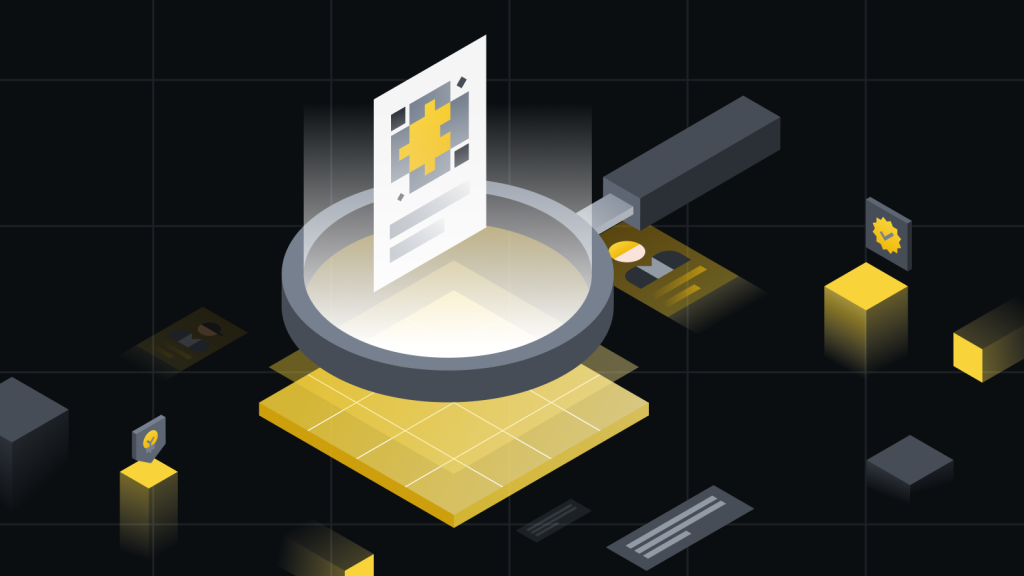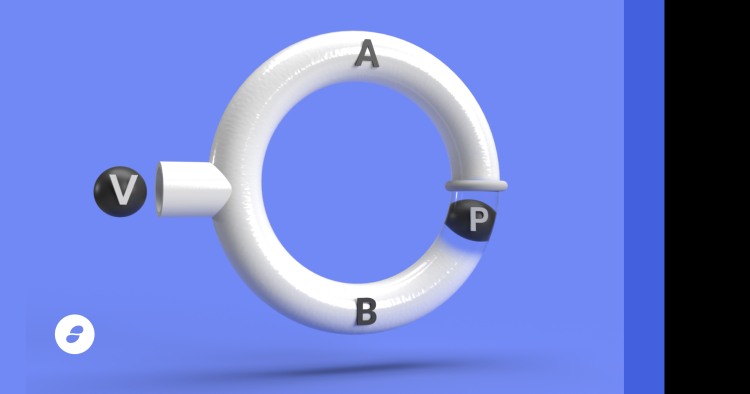Blockchain technology, celebrated for its decentralized nature and transparency, has become a foundation for innovations in various industries such as finance, healthcare, and supply chains. However, as blockchain networks grow and more sensitive data gets stored on decentralized ledgers, the need for robust privacy protection has become a critical concern.
In traditional centralized systems, privacy is maintained by a central authority that controls access to information. But in a blockchain network, where transparency is a key feature, ensuring privacy while maintaining the integrity and security of the data becomes a significant challenge. One groundbreaking technology that has emerged as a potential solution to this issue is Zero-Knowledge Proofs (ZKPs).
This article explores how blockchain privacy protection is evolving and examines the role that Zero-Knowledge Proofs could play in shaping the secure future of privacy in blockchain networks.
Why Blockchain Privacy is a Challenge
While blockchain provides numerous advantages, its public ledger is often a double-edged sword. On one hand, it allows for complete transparency and immutability of data, which is essential for ensuring accountability and trust. On the other hand, this level of openness can lead to potential privacy risks.
In blockchain networks, all transactions are visible to anyone who has access to the blockchain. For instance, in the Bitcoin network, every transaction is publicly recorded on the ledger, and anyone can track the movement of funds between addresses. While pseudonymity is maintained (using wallet addresses instead of personal information), it is possible to correlate addresses and identify the participants in a transaction with enough information.
This lack of privacy can be problematic in various scenarios, such as:
- Financial privacy: Individuals and organizations may not want their financial transactions to be public, as this could expose sensitive business strategies or personal financial behavior.
- Confidential business data: Blockchain networks are increasingly being used in supply chains, healthcare, and other industries where sensitive business information must be kept private.
- Regulatory compliance: Privacy laws like the General Data Protection Regulation (GDPR) in the EU and California Consumer Privacy Act (CCPA) require businesses to ensure user privacy, which could conflict with blockchain’s transparency.
Given these challenges, privacy in blockchain networks needs to be redefined to protect sensitive information without sacrificing the decentralized and transparent nature that makes blockchain valuable.
The Role of Zero-Knowledge Proofs (ZKPs) in Enhancing Blockchain Privacy
Zero-Knowledge Proofs (ZKPs) are a promising cryptographic tool that could address many of the privacy concerns associated with blockchain technology. A Zero-Knowledge Proof is a method by which one party (the prover) can prove to another party (the verifier) that they know a piece of information without actually revealing the information itself.
In the context of blockchain, ZKPs allow participants to prove the validity of a transaction or claim without disclosing the actual details, such as the sender, receiver, or transaction amount. This makes ZKPs an ideal solution for enhancing privacy while maintaining the integrity and security of the blockchain.
How Zero-Knowledge Proofs Work:
- The Prover: The person who has knowledge of a piece of information (e.g., transaction details).
- The Verifier: The person who wants to verify the prover’s claim without learning the actual information.
- The Proof: A mathematical proof that allows the prover to convince the verifier that they know the information, without actually revealing any details about it.
For example, imagine that Alice wants to prove to Bob that she has enough balance to complete a transaction without revealing her total balance or transaction history. Using ZKPs, Alice can generate a proof that confirms she has the required amount of funds, but without revealing her wallet’s balance or transaction history. Bob can then verify this proof, and the transaction can proceed with Alice’s privacy intact.
Why Are Zero-Knowledge Proofs a Game-Changer for Blockchain Privacy?
Zero-Knowledge Proofs are groundbreaking because they provide a mechanism for privacy-preserving validation. Let’s look at some of the key benefits of ZKPs in the context of blockchain privacy:
1. Full Privacy Protection
ZKPs allow individuals to prove the validity of transactions without disclosing any sensitive information. This is particularly useful for blockchain-based systems where users need to prove something (like ownership of funds or the completion of a contract) without revealing personal details or transactional data.
- Example: ZKPs can be used in decentralized finance (DeFi) platforms to allow users to prove they are eligible for a loan or investment without revealing the entire contents of their financial portfolio.
2. Scalability
Zero-Knowledge Proofs also offer a potential solution to blockchain scalability issues. For example, ZK-SNARKs (Zero-Knowledge Succinct Non-Interactive Arguments of Knowledge) are a specific type of ZKP that allows for small, fast proofs. These succinct proofs do not require much data to be transmitted, making them efficient and scalable for blockchain networks.
- Example: Zcash, a privacy-focused cryptocurrency, uses ZK-SNARKs to provide shielded transactions, enabling users to send and receive funds privately without sacrificing scalability.
3. Security and Integrity
Despite offering privacy, ZKPs do not compromise the security or integrity of the blockchain. The verification process ensures that the data is correct, and the blockchain’s immutability is maintained. This means that blockchain transactions can be private while still being secure and verifiable.
4. Regulatory Compliance
Privacy-preserving features like ZKPs allow blockchain networks to meet regulatory requirements without sacrificing user privacy. For example, ZKPs can be used to verify that a user is complying with Know-Your-Customer (KYC) and Anti-Money Laundering (AML) regulations, without revealing their identity or transaction history.
- Example: A decentralized exchange (DEX) could use ZKPs to confirm that a user is not involved in illicit activities, without needing to collect or store personal identification data.
5. Preservation of Decentralization
One of the core principles of blockchain technology is decentralization. ZKPs help preserve decentralization by allowing verifiable proofs to be made without involving a central authority. The network remains trustless, and there is no need for a third party to verify or store sensitive data.

Challenges of Implementing Zero-Knowledge Proofs in Blockchain
While Zero-Knowledge Proofs present an exciting avenue for enhancing blockchain privacy, there are still several challenges to their widespread adoption:
1. Computational Complexity
Despite being highly efficient in terms of data transmission, ZKPs can be computationally intensive to generate. The complexity of creating and verifying ZKPs can require significant processing power, which may not be feasible for all blockchain networks, especially those with limited resources.
- Solution: Over the years, researchers have worked on optimizing ZKPs to make them more efficient. Techniques like ZK-SNARKs and ZK-STARKs have been developed to reduce computational overhead and improve scalability.
2. Integration with Existing Blockchain Infrastructure
Integrating Zero-Knowledge Proofs into existing blockchain networks can be a complex process. Many networks are built around public verification and transparent ledgers, so incorporating ZKPs may require a fundamental shift in the way transactions are validated and executed.
- Solution: Some newer blockchain projects, like Zcash and Horizen, have already successfully integrated ZKPs into their ecosystems. However, more established networks like Ethereum are still experimenting with how best to implement privacy features using ZKPs.
3. Regulatory and Legal Concerns
While ZKPs can help blockchain projects maintain privacy while adhering to regulatory standards, they also raise new questions about accountability and auditability. For example, ZKPs allow users to conceal their transaction history, which could complicate investigations into illicit activities.
- Solution: Some solutions are being explored, such as Verifiable Claims in combination with ZKPs, which allow for certain proofs (such as KYC verification) to be submitted without revealing sensitive details. This allows for regulatory compliance while maintaining privacy.
Conclusion: The Future of Blockchain Privacy and Zero-Knowledge Proofs
The potential for Zero-Knowledge Proofs (ZKPs) to revolutionize privacy protection in blockchain systems is immense. They offer a powerful, cryptographic method for ensuring the privacy of users and data while maintaining the security and integrity of transactions. As blockchain adoption continues to grow across various sectors, the need for privacy-enhancing technologies like ZKPs will only become more pressing.
Despite the challenges related to computational complexity, integration, and regulatory concerns, the future of blockchain privacy looks promising with the development of more efficient ZKP protocols like ZK-SNARKs and ZK-STARKs. By allowing for secure, private, and scalable solutions, ZKPs could pave the way for blockchain’s privacy revolution, unlocking new possibilities for decentralized applications (dApps), finance, identity management, and compliance.
As blockchain technology continues to mature, ZKPs will likely play a central role in creating a more secure, transparent, and privacy-conscious blockchain ecosystem, opening the door to more widespread adoption across industries.













































